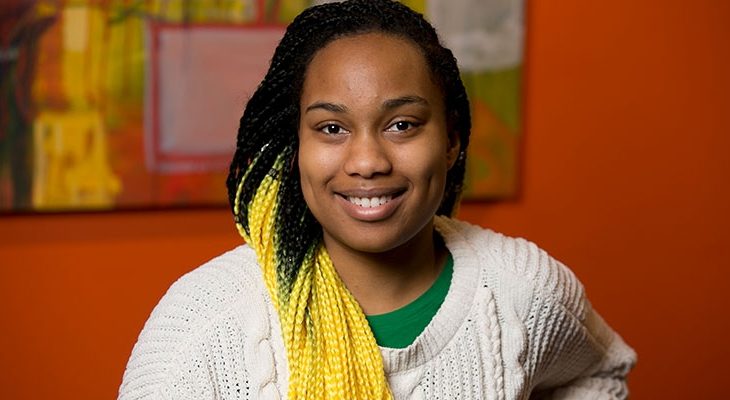Religious Freedom of Hearing-Impaired People
August 12, 2020

Yaa Baker is a junior Religion major at the University of Rochester who works as an interfaith intern facilitating interfaith events and dialogue for students in her school’s chapel. Her Baptist faith tradition leads her to interfaith work by the command “love thy neighbor.” Yaa is an IFYC Coach.
Religious Services are high stakes interactions for people incarcerated. According to the report and recommendation of Magistrate Judge David Grand in case Mcbride et Williams v. Michigan Department of Corrections, Ralph William, an incarcerated person under the authority of the Michigan Department of Corrections could not practice his religion because he could not hear the service and was not provided with an ASL interpreter. Religious programming is an integral tool for rehabilitation in prisons. Almost two-thirds of chaplains say that religious programming is ‘absolutely critical’ to the rehabilitation of incarcerated people. ASL dependent hearing-impaired incarcerated people are denied this resource of healing and reformation that is pertinent to the well-being of many free and incarcerated people alike.
Hearing impaired incarcerated people all over our nation struggle with accessibility to auxiliary aids that allow them to participate in programming, socializing, and calling home. These auxiliary aids are their constitutional right under title II of ADA. Their rights are often not at the forefront of people’s agendas for advocacy, but that does not make them any less imperative.
Interfaith work relies on the right to freely practice one’s religion and then to cooperate with those from different belief systems. For interfaith leaders like myself, it is part of our duty to advocate for the rights of people with disabilities within interfaith circles, as well as doing what we can to advocate with hearing-impaired incarcerated people as well. This is our battle to fight, and we must do so in a way that is both collaborative and assertive. We must humbly work with disability rights advocates without yielding responsibility or investment. This is our cause to advocate for too.
At Interfaith Youth Core’s 2019 ILI, Montse Alvarado mentioned the beauty in someone sharing their most foundational values with other people. Alvarado, the VP and Executive Director of the Becket Fund for Religious Liberty, was speaking positively of common practices of conversion attempts in religiously diverse spaces. Prisons are also places where people can encounter new religious ideas and embrace them as their own. 73% of chaplains report conversion attempts are very common among incarcerated people. This exchange of beliefs can be a productive learning experience, but it not available to hearing-impaired people if they do not have the resources necessary for them to communicate with their peers.
As advocates for religious freedoms, it is crucial to consider how our mission intersects with the missions of others. Religion is integrated into people’s multifaceted lives. To be effective advocates, our activism must also be multifaceted to include issues such as race, and background as well as hearing-impaired people who are incarcerated.
Share
Related Articles
American Civic Life
Faith Based Efforts Work in Vaccine Uptake: Now Let’s Make it Easy
American Civic Life
We Commemorate, We Commit: Out of Catastrophe, a Conversation on Connection and Repair
American Civic Life



